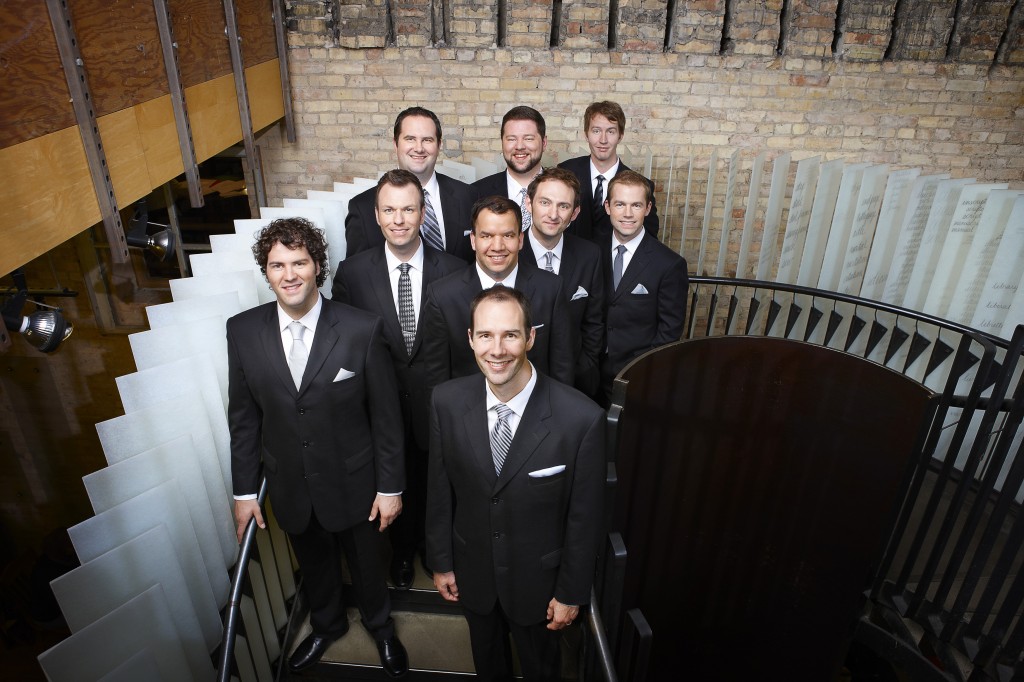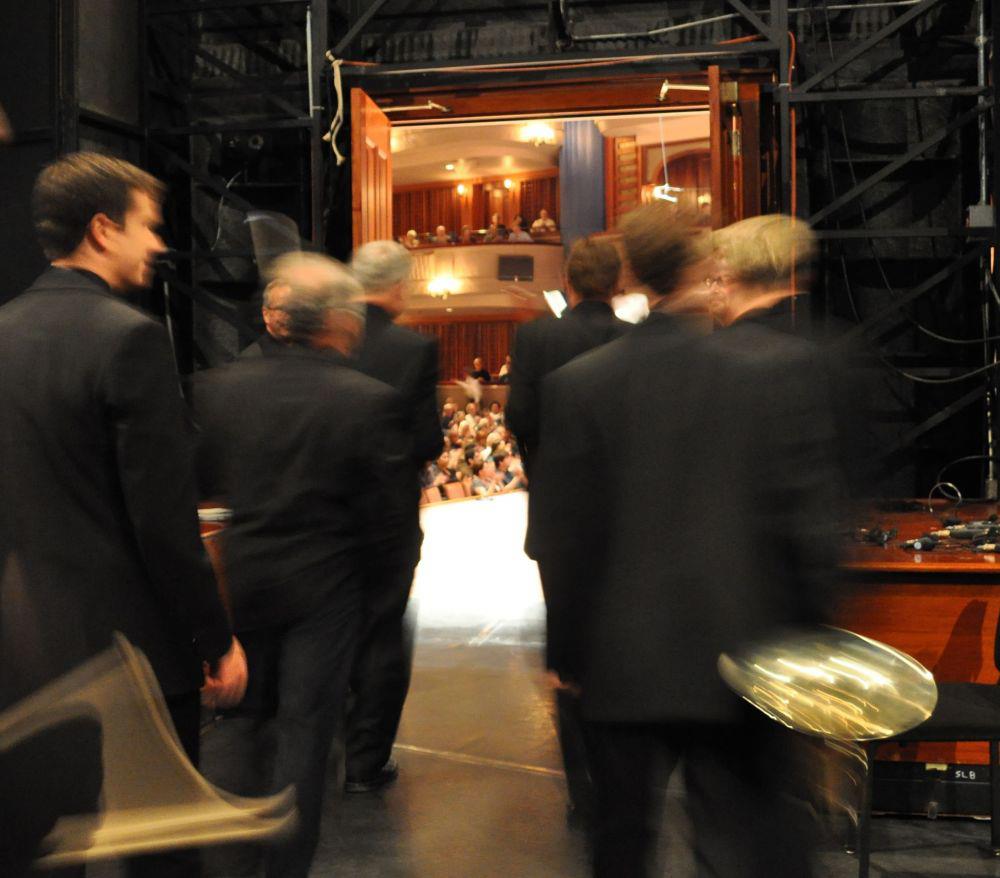
Nico Muhly’s “Luminous Body” lives up to its name
The Saint Paul Chamber Orchestra (SPCO), under the direction of conductor Joana Carneiro, drew a full house to the Ordway on Saturday night. It was opening weekend of the 2011-2012 performance season for this Knight Arts grantee, but that’s not the only reason the performance hall was humming with anticipation. We were all especially eager to hear Cantus, a nationally acclaimed men’s vocal ensemble that would be joining the lauded musicians of the Saint Paul Chamber Orchestra on stage for the evening’s headline performance. That performance was the world premiere of an ambitious new work, “Luminous Body,” jointly commissioned from buzzed-about young composer Nico Muhly by the Saint Paul Chamber Orchestra, Cantus and the Minnesota Commissioning Club.
“Luminous Body” is a collaborative effort by Muhly and Pulitzer-nominated playwright Craig Lucas (“Prelude to a Kiss” and “The Dying Gaul”); the two also recently worked together to create the opera “Two Boys,” a commission by New York City’s Metropolitan Opera (which will include the work in its 2013-2014 season) that had its own critically hailed premiere at the English National Opera just this summer.
The two created “Luminous Body” in the period just following their work on “Two Boys;” Muhly describes this piece for Cantus and Saint Paul Chamber Orchestra as gestural and meditative — an intentional pendulum swing away from their “narrative charged” work on the opera. Lucas’ libretto for “Luminous Body” offers what, in the pre-concert remarks, Muhly calls an “intergenerational conversation” — a “deliberate mess” of the world’s “wisdoms,” with a mishmash of aphorisms and platitudes drawn from Buddhism, Islam, the Gnostic Gospels and New Testament and even Plato.
Muhly’s composition for instrument and voice is complex but surprisingly accessible, and, considering the weightiness of the subject matter, it’s remarkably restrained, too — more “who am I?” than “thou shalt” in mood. “Luminous Body” explores the human condition in five movements, which undulate between lucid threads of discernible melody and message and more opaque, diffuse soundscapes: from the grand progressions of the origin story to a melancholic contemplation of theodicy and the power of the word, followed by a particularly memorable, moving homage to the Beatitudes, ending with satisfying, interfaith assortment of benedictions.
In performance, “Luminous Body” was sung with warmth, precision and tremendous nuance by the men of Cantus, who handled the occasional nonsense vocalizations called for with as much finesse as they did those more finely articulated, more declarative moments in the text of the piece. Similarly, the instrumental requirements of Muhly’s new piece are rigorous, but the musicians of Saint Paul Chamber Orchestra dealt with the intricacies of his score deftly, and the interplay of vocals with orchestra sounded effortless and organic.
In addition, the concert included orchestral performances of Haydn’s lovely “Sinfonia Concertante in B-flat,” Brahms’ warm, richly textured “Variations on a Theme by Joseph Haydn” Op. 56a and an impassioned, conversational rendition of Bach’s “Concerto for Two Violins in D Minor,” carried off brilliantly by associate concertmaster Ruggero Allifranchini and violinist Kyu-Young Kim.
You’ll soon be able to stream Saturday night’s concert by the Saint Paul Chamber Orchestra and Cantus and hear the premiere of Muhly’s “Luminous Body” for yourself on Minnesota Public Radio. Next up, Saint Paul Chamber Orchestra will feature music from Finland, including Magnus Lindberg’s “Violin Concerto” (performed by Simone Lamsma) and the “Third Symphony” by the Finnish folk hero and one of late Romanticism’s quintessential voices, Jean Sibelius. This concert will be at the Ordway Center on Sept. 16 and 17 at 345 Washington St., St. Paul, Minn. 55102. Visit the Saint Paul Chamber Orchestra website for performance times and ticket information for this and all other upcoming shows.
Recent Content
-
Artsarticle ·
-
Artsarticle ·
-
Artsarticle ·



